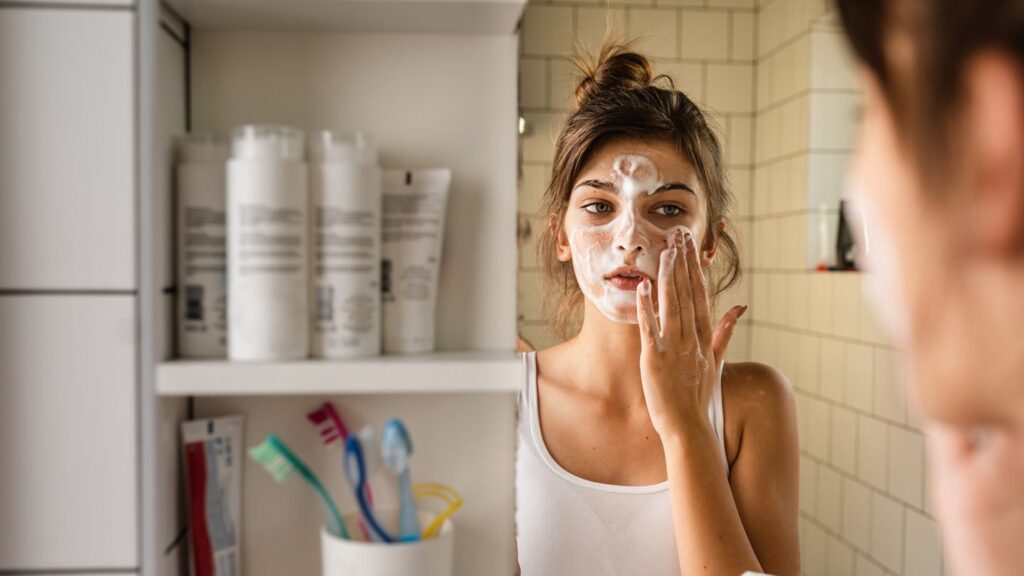3. Use Gentle Cleansers to Avoid Triggering a Potential Flare
Also be careful with products that contain retinoids or salicylic acid. Follow the same skin-care guidelines you do when choosing a moisturizer: Your cleanser should be fragrance-free and hypoallergenic. “Be careful about how you use it,” Green adds. Remember, scrubbing has no place in a rosacea skin-care routine.
4. Be Careful With Facials — They May Do More Harm Than Good for Rosacea
Chemical peels, microdermabrasion treatments, and even run-of-the-mill facials may be suitable for your best friend’s complexion, but they may make your rosacea worse, Green says. “These treatments can irritate the skin, which can aggravate rosacea,” she warns. If you want a rejuvenating treatment to make your skin look younger or smoother, you can work with your dermatologist to find other skin-care options. In some cases, there are various light peels, such as lactic or mandelic acids, that may be more gentle for rosacea-prone skin; check with your doctor to find out if that’s a good option for you.
5. Opt for Mineral-Based, Fragrance-Free Makeup When Possible
Makeup may be used for rosacea self-care to cover up ruddy cheeks, but it can also worsen rosacea symptoms, says Taub. “Choose fragrance-free, mineral-based makeup,” she suggests. “This tends to be much less irritating to the skin than other types of makeup.” The formula of any makeup for rosacea is also essential. When choosing a foundation, Green suggests opting for pressed powder over liquid formulas, as liquid can clog pores and exacerbate rosacea symptoms. If you’re unsure about how a product might affect your skin, check with your dermatologist first.
6. Practice Sun Safety to Prevent Rosacea Flares
7. Take Self-Care Steps to Calm Down Rosacea Flares When They Occur
Flares happen when you have rosacea. To minimize rosacea symptoms, try placing ice packs on your face to calm down the inflammation, Taub suggests. Green tea extracts can also be soothing, she adds. Always monitor the temperature of any product you apply to sensitive skin. “Don’t use anything hot, as that will make it worse,” she says. Work with your dermatologist to develop a strategy for managing rosacea flares. They may have specific rosacea skin-care products to recommend.
8. Get to the Bottom of What’s Irritating Your Skin in the First Place
Consult your dermatologist to ensure you’re doing everything possible to minimize your symptoms.
The Takeaway
- Rosacea is a skin condition primarily affecting the face.
- It can cause outbreaks that resemble acne.
- Managing the condition involves knowing your triggers and choosing gentle skin-care products.
- It is also vital to practice sun protection.
- A healthcare provider can help you develop a personalized skin-care plan.
Additional reporting by Melinda Carstensen.

